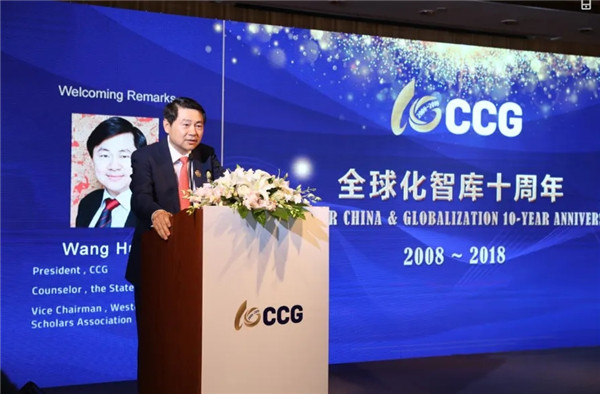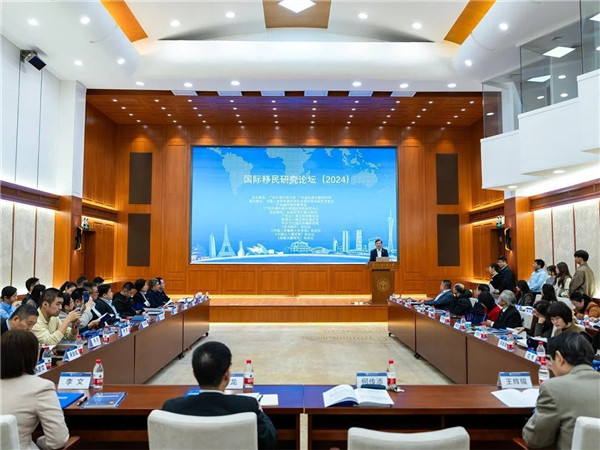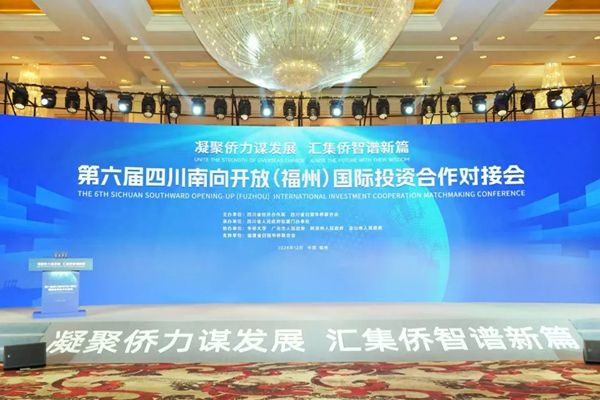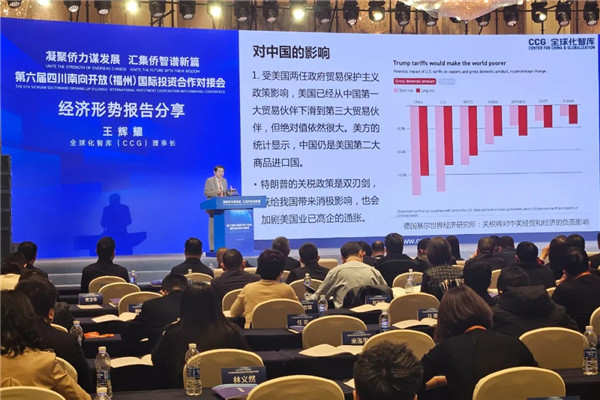【China Daily】Changing times demand bigger role in WTO
2016年12月8日
Editor’s note: A number of experts spoke at a recent forum organized by the Center for China and Globalization (CCG) and the Center for Strategic and International Studies to mark the 15th anniversary of China’s entry into the World Trade Organization. Following are the views of some of those experts:

Wang Huiyao, president of CCG and a Counselor to the State Council
Globalization the way forward
Global governance in its existent form is facing challenges, so a new form of global governance is emerging. With the Doha Development Round of the WTO coming to a halt, the major economies, which are in dire need of new global trade rules, have accelerated the pace of talks among themselves through multilateral arrangements such as the Regional Comprehensive Economic Partnership, the Belt and Road Initiative (the Silk Road Economic Belt and 21st Century Maritime Silk Road), and the Transatlantic Trade and Investment Partnership.
China needs to make better use of these arrangements to be able to write new global trade rules, which in turn will propel its domestic reform forward, help it maintain its established priorities in global trade and expand the influence of its capital.
The United Kingdom benefited from the earlier stages of globalization, the United States did so from the later stages, and China is benefiting from the current stage. As such, China will continue to support globalization and will take the process forward.

He Yafei, former vice-foreign minister of China, CCG consultant
Helping increase global growth
Globalization entered a new phase after the 2008 global financial crisis, and today the world is witnessing a power shift and change in global governance.
While defending the existing global governance mechanism with the United Nations at its core since the end of World War II, China advocates reform of international relations to establish a new win-win model based on common prosperity and shared development. Its proposals are in accordance with the interests of the entire international community. China is a defender of and contributor to the global governance mechanism, not a violator as some Western media outlets allege.
China supports the global trade and investment system featuring free, open and fair trade. It will continue to participate in and lead global governance to make it more open and transparent.
China will also make more contributions to global governance, and intensify its efforts to raise global economic growth. And it will provide more global public products and play a more positive role as a major economic power.

Tu Xinquan, a Non-Resident Senior fellow of CCG, a senior researcher in WTO affairs at the University of International Business and Economics
China can play leading role in WTO process
Since the Doha Development Round could not be completed by the end of 2011, the WTO is finding it difficult to propel the talks forward.
The problem lies in the WTO’s objectives. The new topics of WTO talks increasingly involve the domestic policies of its participants. But this is not the time to discuss or change domestic policies. For the same reason some bilateral free trade area agreements have made little progress in the talks on free trade over the past few years. So China should start playing a leading role in the WTO process, for which it needs to make a lot of preparations on the economic and policy fronts. That China will continue to support globalization is beyond doubt. The problem is that the international community lacks consensus on what kind of new policies and theories to adopt. WTO members need to solve this problem in the coming years before propelling globalization forward.

Sun Yongfu, a Non-Resident Senior fellow of CCG, former head of the Department of European Affairs, Ministry of Commerce
Negotiations key to better future
Since joining the WTO in 2001, China has not only participated in but also has done everything it can to adapt to the world order. Over the past 15 years, China’s economy and trade volume have increased dramatically to the astonishment of both China and its global partners.
Beijing has been playing an increasingly important role in international relations; it is promoting the Belt and Road Initiative and played the leading role in establishing the Asian Infrastructure Development Bank, which are actually rule-making practices. In fact, it has been helping draft new rules for global governance.
But that does not mean Beijing is out to break the existing rules. It only hopes to add new, and much-needed elements to the current global governance mechanism, which requires it to consider some problems from a global perspective and better balance the interests of various parties.
Negotiation is one of the processes to achieve the right balance among different interests, so China must pay greater attention to this problem while making more efforts to draft global rules.

He Ning, a Non-Resident Senior fellow of CCG, former head of the Department of American and Oceanic Affairs, Ministry of Commerce
The benefits of free trade rules
That other WTO members started treating it as equal is one of the greatest benefits China got by joining the WTO. In other words, WTO rules regulate not only China’s policies toward the other members, but also the latter’s policies toward China. In many cases, these rules have helped China avoid becoming the victim of the domestic policies and politics of some Western countries.
In 2005, US senato Chuck Schumer accused China of "currency manipulation" and moved a bill to levy 27.5 percent tariff on all Chinese products exported to the US. Had that bill been passed, it would have spelled disaster for Sino-US trade because products labeled "Made in China" would cost 27.5 percent more in the US. The move sparked fierce discussions in the US, and Schumer was eventually forced to withdraw the bill, because it was against the multilateral rules of the WTO.
It was a typical case of the WTO rules helping China avoid antagonistic measures of Western countries. Western countries could not pass such bills targeted at China, because they were not in accordance with the WTO’s rules. Of course, China too has to follow the rules, so as to maintain a good trade environment for all.
From China Daily,2016-12-7






